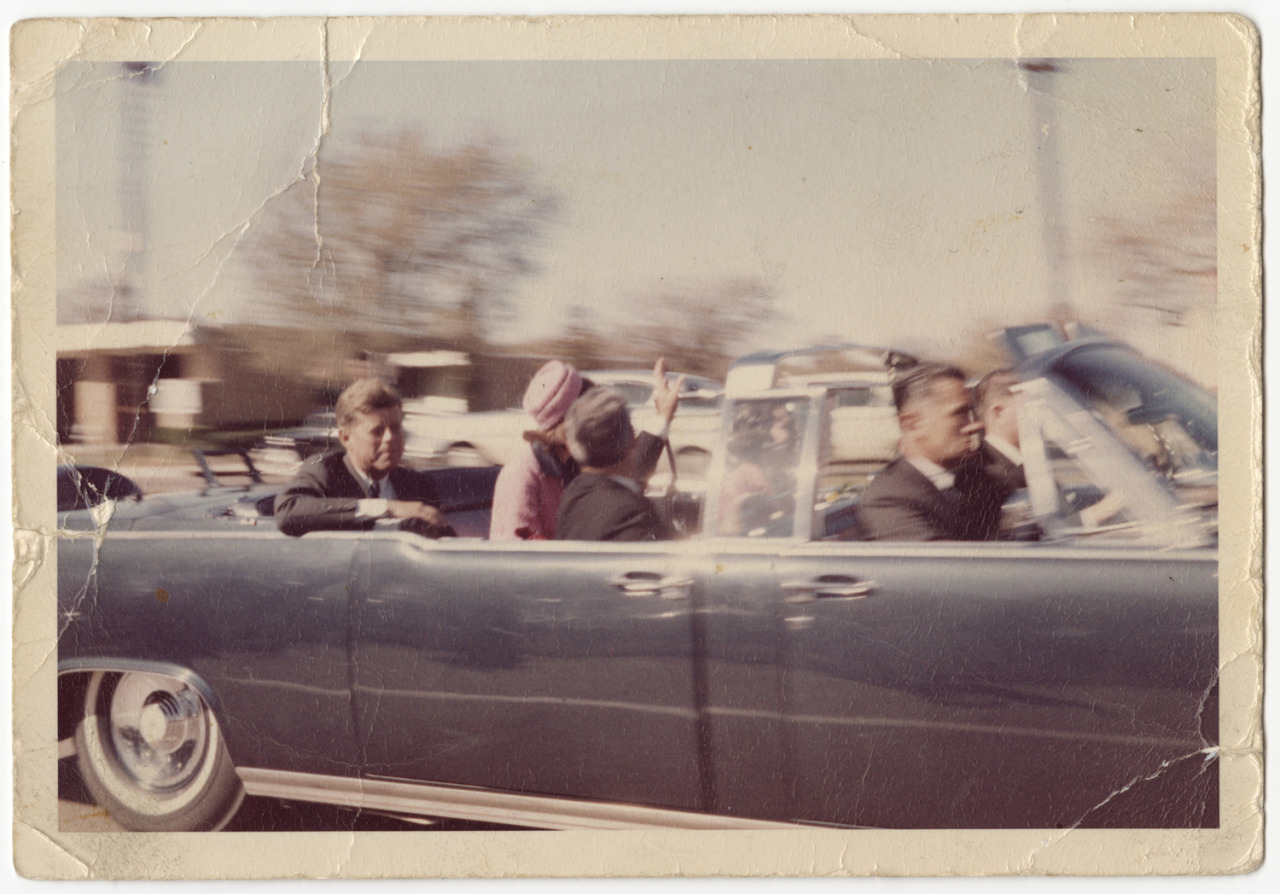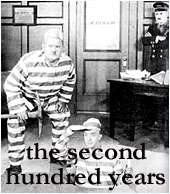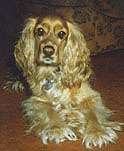the visitor
 It was a wondrous thing, that day, in the last days to fish in autumn, where augering through the ice in the days ahead did nothing more than wind a man, refreezing, drill, refreezing, drill, warm beer, sunset.
It was a wondrous thing, that day, in the last days to fish in autumn, where augering through the ice in the days ahead did nothing more than wind a man, refreezing, drill, refreezing, drill, warm beer, sunset.
He was fishing alone on the calm mirrored lake when she escaped and dove overhead, plopping down into his boat, squirming. He was frightened at first, his breath held, chest tightened in fear. She was rather old for a mermaid, he thought. Her eyes were open, slowly rolling from side to side, seemingly searching. She was alive, so he decided not to roll her back over starboard, imagining an arch enemy hammer head in the deep directly below. He covered her with his old Rough Rider tarp, softly apologizing its roughness. The mermaid's lips moved after its fixed green eyes became still, aimed at his forehead. She moaned in a soft whispering desperate tone like a watered flute. Her silver eye brows knitted into a sharp V when he spoke to her softly, relaxing into a straight line, a laugh perhaps?, when he told her in a shaky voice that the only doctor close was ailing with a broken collar-bone. And besides, he always cured all townsfolk patients with 2 glasses and bottle of spirits, chased down with a little philosophical talk, seated at a wobbly kitchen table in the dubious light of a smoky kerosene lamp. Her breathing slowed. Rowing did not budge the craft. He buried his head into his cold hands. What did the Bible say about underwater creatures? It didn't matter. He had buried his Bible with his wife years ago. His thinking was fragmented as in late night slumber. "This living flesh is not a creature", he said unto his hands. Time passed, but no one could say just how long. It began to snow.
She touched his leg.
He looked at her hand. It was like his, only smooth. She spoke.
"What is your name?"
"Philip", he answered, astonished like he wasn't sure.
She smiled. Her lips and cheeks blushing baby-blanket blue.
"Like the vagabond disciple", she nodded. Her eyes widened. She handed him a small instrument resembling a golden harmonica with a solitary opening.
"I am dying today. Call my two daughters with this. They will stay with you forever, Philip."
He opened his mouth, but no words.
"The only spirits you will ever need", she winked, and then her eyes closed, lips whitening.
He had to hold the gift with both hands, afraid of it slipping overboard. There was sound of thunder in the distance, a sliver of blue sky reflected off the lake, a duet of laughing, all the burdens in his soul eased...in those fleeting moments from the song of the mermaid.
Autumn on the River, 1889, John Singer Sargent
pale blue letter

She has this old love letter in a book. The line with 'you are beautiful'. When she is down, mostly blue evenings composed of sour-milk melancholy, she'll go to the shelf and just touch the book enclosing the treasured letter - Hemingway's To Have and Have Not, and her gloom dissipates. It was her husband's favorite book, and it seemed to her the perfect resting place, about mid-way, page 112. He would re-tell the story of not having the illusive penny for postage. The stain of his sweaty palm marks the back, you can see, from when he paced back and forth in front of the postal station kindly asking outraged passerby for a coin to affix a stamp. He was most certainly broke that morning, he'd recount when conversation at holiday get-togethers would lag, anxious to inform his wife he'd secured a printing job, to pack her cardboard suitcase, the future is ours, darling. And she'd squeeze his arm, snug around her as he told the story, laughing through her nose at first, ultimately wiping tears away with her palms. Now he is dead. As many times as the letter has been read, by friends and acquaintances too, she's directed the reader to those three words. They flow easily like the rest, no darker or careful stroke, nor underline. A statement of fact, not necessarily a momentary compliment, written hurriedly with a rapid heart: 'you are beautiful', when she knew she was plain. Knock loudly; give her time to throw the deadbolt. The inviting reach towards the tucked pale-blue brittle paper, a sharp breath, there! - protruding out the top slightly, quick as innocent sunrise, even in winter. I'll let her know you're coming. It'll do you wonders because you've been looking a little pale. Kindly ask her to read it to you in her soft cello tone, free of egotism, passage that gives hope to the hopeless. Be sure to drop a penny in an old pimento glass jar nearby with a slot in the screw top lid.
double exposure
 Danseuse ajustant sa bretelle, 1895-96, Edgar Degas
Dust kicked up all around, but there was a streak of purple in the distant sky like an oil painting, save for a horseshoe orange glow lit by the setting sun, the promise of rain droplets to beat down the horrific dust. He fumbled with his hat when he entered, not quite knowing what to do with his hands, turning the hat in both hands, even after he sat down at the coffee counter. She was beautiful, he thought. The pencil on her right ear should've been a budding flower. She smiled at him, and then she looked down. He was still holding the hat when the coffee was hot, black and strong before him. He followed her eyes to the hat and then he looked down.
Danseuse ajustant sa bretelle, 1895-96, Edgar Degas
Dust kicked up all around, but there was a streak of purple in the distant sky like an oil painting, save for a horseshoe orange glow lit by the setting sun, the promise of rain droplets to beat down the horrific dust. He fumbled with his hat when he entered, not quite knowing what to do with his hands, turning the hat in both hands, even after he sat down at the coffee counter. She was beautiful, he thought. The pencil on her right ear should've been a budding flower. She smiled at him, and then she looked down. He was still holding the hat when the coffee was hot, black and strong before him. He followed her eyes to the hat and then he looked down.
"Oh. So that's what coffee looks like", he said.
She laughed silently. He thought Edvard Munch should lighten up and paint her next. And he should do her in pastel, minute black and white, fair chestnut for hair untied, and leave purple for the threatening sky. He would have to apportion blue and silver for her eyes. All tools of the trade could be carried in his hat.
"Let me take that", she said pointedly. She had a brush behind the counter and, delicately at first, brushed with an even firm stroke. Coffee and a brush? He watched her with parted lips.
"You're very kind", he said.
"Oh", she started. She looked at him and just smiled. She breezed out from behind the counter, he marveled at her slenderness, and placed his hat on a high short empty shelf just inside the front door entwined by a green vine plant. She blushed when she saw him watching her, but her eyes were full of humor, she did not look away. A woman expecting nothing in return. A storm hovered, rain pelting the front window. He was in love.
sliced any way
 le Jardin, 1962, by Max Ernst
Hell, let me tell you what Pepe Lococo had to endure. First - meet the 'doctors'. Dr. Bela, a man of fifty, cement-colored skin, black eyes, licks his lips whenever the mention of blood rises to the top. Loves the site of blood when he brushes his teeth. Hard-bristled man. Then there's Dr. Boris - Tall, glassy pale eyes, bent over in the middle, broken cement-colored complexion, heavy white eyebrows. His tongue is twice the size of yours, so he sounds elegant as he chooses his words patiently.
le Jardin, 1962, by Max Ernst
Hell, let me tell you what Pepe Lococo had to endure. First - meet the 'doctors'. Dr. Bela, a man of fifty, cement-colored skin, black eyes, licks his lips whenever the mention of blood rises to the top. Loves the site of blood when he brushes his teeth. Hard-bristled man. Then there's Dr. Boris - Tall, glassy pale eyes, bent over in the middle, broken cement-colored complexion, heavy white eyebrows. His tongue is twice the size of yours, so he sounds elegant as he chooses his words patiently.
Pepe passes through the downhill village of Le Jardin on foot. A woman scurries at the sight of him, spilling fresh water collected all day in a slow drip in a bucket stolen from a neighbor's downspout. Pepe - Twenty and five, with leather skin, pockmarked. Shutters slam shut as he approaches, and dogs howl. Today he's going to learn how to dissect.
Dr. Bela slams the fly swatter on the polished metal lab table. Twice.
"Must you do that so hard"?
"He was in the proximity of my crested turkey on rye".
"He"?
Pepe turns at the last bungalow, strides the cart path up to the laboratory. A dog bites him in the heel and he is bleeding. He takes his small pencil out of his overcoat and makes a note of it, including a sketch of the animal. Unaware, paying attention to the detailed sketch of the alert ears, a cart scurrying past hits him head-on, killing the intern instantly.
Dr. Bela slaps Dr. Boris square on the forehead with the flyswatter.
"I am sorry". Dr. Boris shrugs his shoulders, calmly walks over to the sandwich and flings it across the floor with a surgical hook. The plate slides under a book shelf. He walks back over to Dr. Bela, lips parted, ready to accept reciprocation. Dr Bela smiles, and after a moment speaks slowly, eying the slabbed outline under the white sheet.
"Perhaps, we should begin".
"Pepe is late. You have time to eat. Although, my friend, your sandwich may be hard to reach".
Dr. Bela is no longer smiling. And then he is grinning before you know it, like a switch has been flipped, or a lever(pronounced by both men: 'leave her') is in the up/on position.
Dr. Bela flings the white sheet back and is horrified and disappointed to find no cadaver, but a model made of sponge-foam. He glares at Dr. Boris as though he stole a kiss from his daughter, thirty years younger.
"It will have to do", Dr. Boris explains, in an extended monologue lamenting the difficulty of procuring a live human cadaver in this day and age. He particular relishes repeating those three words: live human cadaver.
"Yes, I suppose. As long as we can show Pepe how to do a centralized incision".
"Lateral".
"Central".
"Lateral, you fool!"
"I'm no fool!"
Dr Boris painfully lowers himself, stooping, stooping, blindly reaching for the sandwich, searching. He rises out of breath, places the dusty sandwich before his adversary and performs the most expert lateral incision in dim incandescent light wielding his shiny prized bone chisel.
 11,041 vagabonds plus:
11,041 vagabonds plus:

Web Counters
All original designs and text created by the author of this blog, Phil L., are licensed under a Creative Commons Attribution-NonCommercial-ShareAlike3.0 License. All other materials remain the property of their respective owners and/or creators, unless of course they are part of the public domain.
 It was a wondrous thing, that day, in the last days to fish in autumn, where augering through the ice in the days ahead did nothing more than wind a man, refreezing, drill, refreezing, drill, warm beer, sunset.
It was a wondrous thing, that day, in the last days to fish in autumn, where augering through the ice in the days ahead did nothing more than wind a man, refreezing, drill, refreezing, drill, warm beer, sunset. 










